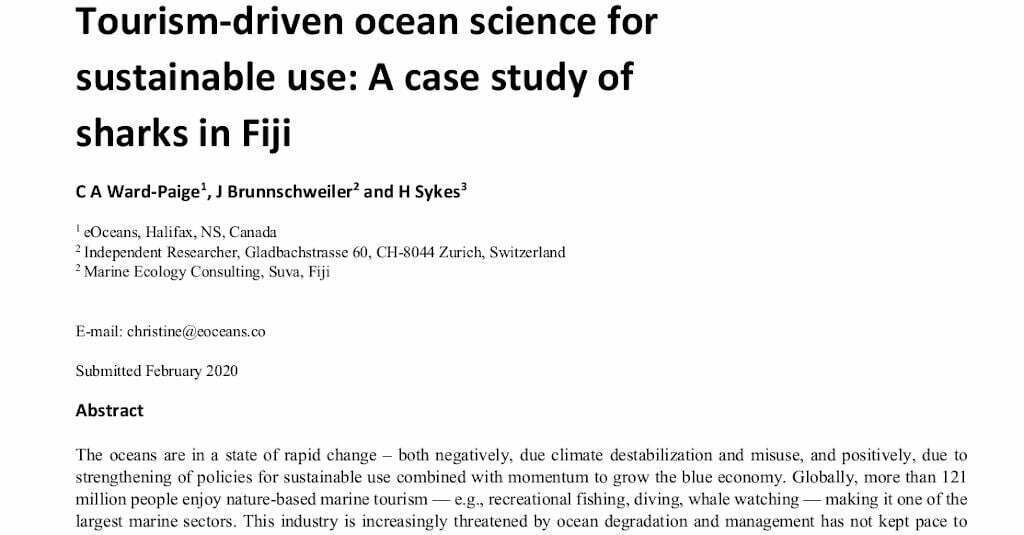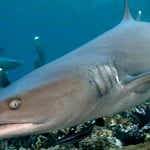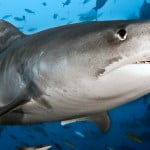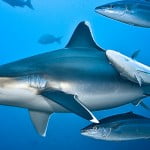Pre-print of new paper available, a case study of sharks in Fiji , based on the results of the Great Fiji Shark Count.

Abstract
The oceans are in a state of rapid change – both negatively, due climate destabilization and misuse, and positively, due to strengthening of policies for sustainable use combined with momentum to grow the blue economy.
Globally, more than 121 million people enjoy nature-based marine tourism — e.g., recreational fishing, diving, whale watching — making it one of the largest marine sectors.
This industry is increasingly threatened by ocean degradation and management has not kept pace to ensure long-term sustainability. In response, individuals within the industry are taking it upon themselves to monitor the oceans and provide the data needed to assist management decisions.
Fiji is one such place where the dive tourism industry is motivated to monitor the oceans (e.g., track sharks). In 2012, 39 dive operators in collaboration with eOceans commenced the Great Fiji Shark Count (GFSC) to document sharks (and other species) on 592 dive sites.
Here, using 146,304 shark observations from 30,668 dives we document spatial patterns of 11 shark species.
High variability demonstrates the value of longitudinal data that include absences for describing mobile megafauna and the capacity of stakeholders to document the oceans.
Our results may be used to guide future scientific questions, provide a baseline for future assessments, or to evaluate conservation needs.
It also shows the value of scientists collaborating with stakeholders to address questions that are most important.
- C A Ward-Paige – eOceans, Halifax, NS, Canada
- J Brunnschweiler – Independent Researcher, Gladbachstrasse 60, CH-8044 Zurich, Switzerland
- H Sykes – Marine Ecology Consulting, Suva, Fiji
Tourism-driven ocean science for sustainable use: A case study of sharks in Fiji
Tourism-driven ocean science for sustainable use: A case study of sharks in Fiji
Tourism-driven ocean science – bioRxiv: preprint © Ward-Paige et al. 2020
Keywords: Citizen science, Sharks, Sustainable use, Community monitoring, Ecotourism, Fiji
BioRxiv preprint first posted online Feb. 4, 2020
doi: http://dx.doi.org/10.1101/2020.02.04.932236
The copyright holder for this preprint (which was not peer-reviewed) is the author/funder, who has granted bioRxiv a license to display the preprint in
perpetuity.
It is made available under a CC-BY-NC 4.0 International license .















Leave a Reply